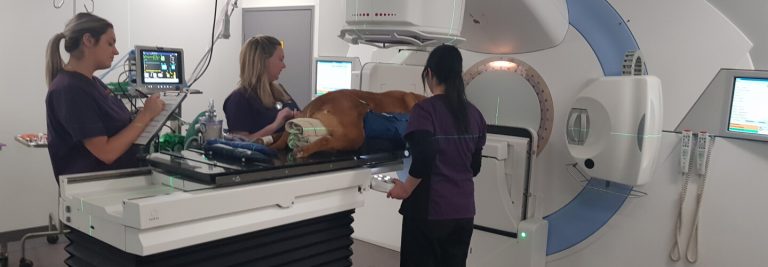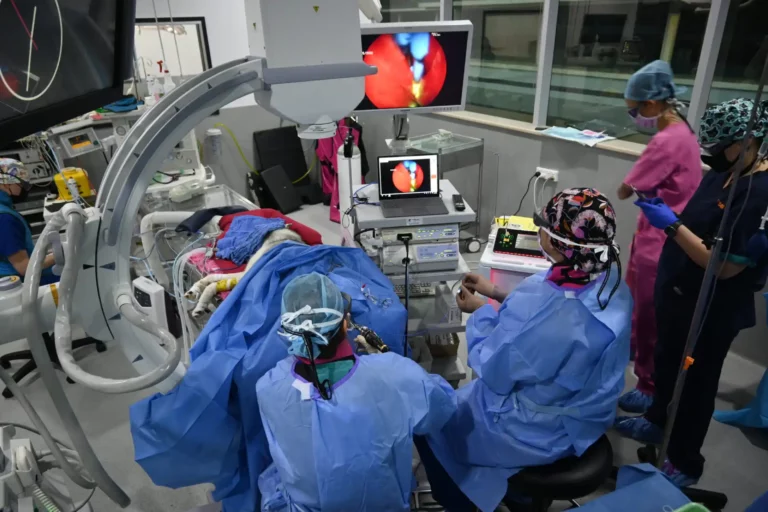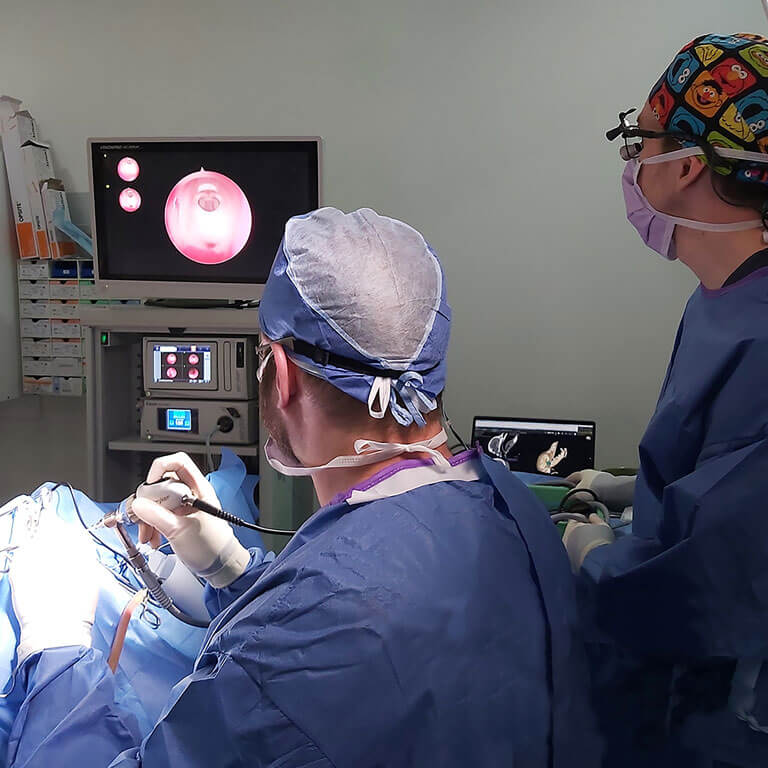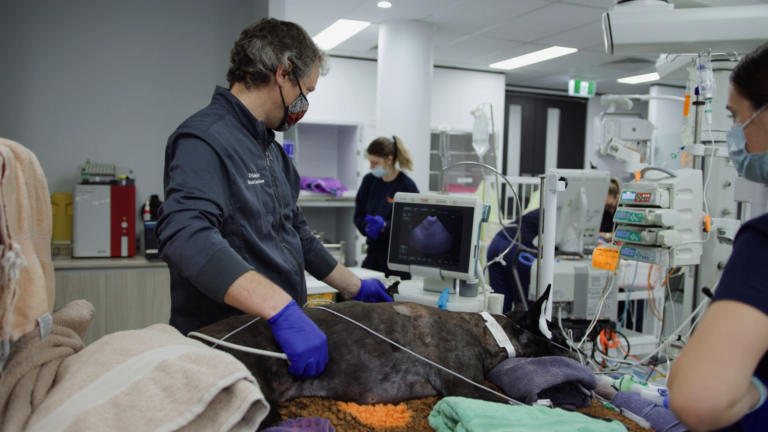What is hyperthyroidism?
Hyperthyroidism is an ‘over-active’ thyroid gland. It is the most common hormonal disorder of cats and is a very common disease of older cats. The thyroid glands are located in the neck and produce thyroid hormone. With hyperthyroidism, the thyroid gland becomes enlarged and produces excessive thyroid hormone.
What are the effects of hyperthyroidism?
Hyperthyroidism results in a number of different clinical signs and not all cats with have all of the following changes. In some cats, hyperthyroidism is diagnosed when the only clinical sign is weight loss
Other signs include increased vocalization, fast heart and breathing rates, increased appetite and weight loss. Some cats have increased vomiting and diarrhea and increases in thirst. If left untreated cats can develop heart disease
Excessive thyroid hormone has many adverse effects on the body, particularly on blood pressure, the kidneys and the heart. Hyperthyroidism can be effectively treated, but left untreated it becomes life threatening.
How can it be treated?
There are different approaches to treating hyperthyroidism:
1. Daily control of thyroid hormone production
These treatments control the production of thyroid hormones and therefore alleviate the clinical signs
due to an overactive thyroid gland. However, they do not cure the underlying condition so treatment is
life long. These treatments are mainly recommended for cats with substantial, concurrent disease that may be a contraindication for one of the curative treatments.
There are 2 ways of controlling daily thyroid hormone production:
a) Daily medication
There are 2 different drugs available to manage hyperthyroidism, carbimazole and methimazole. They both work by blocking the production of thyroid hormone. It is quite common to need increased doses overtime. Both drugs are available as tablets, and methimazole is also available as a gel that is applied to the inner ear. In our experience, topical treatment has more inconsistent results
Anti-thyroid medications can have side effects. The most common adverse effects are mild and resolve without needing to stop treatment (such as vomiting, diarrhoea, loss of appetite), but occasionally more severe side effects can be seen that necessitate stopping treatment. This includes liver toxicity, skin conditions and low white blood cell counts. Cats on medical management require check ups and blood tests to ensure the dose is adequate and there are no adverse effects of the medication
b) Dietary therapy
Hills y/d is a specific diet that reduced thyroid hormone production by restricting iodine in the diet. Iodine is required for the production of thyroid hormone. The diet will only be effective if no other foods are treats are ingested. Studies suggest > 82% of cats will respond to the diet. The safety of using an iodine restricted diet long-term is unknown.
2. Curative treatments
a) Surgery
Surgical removal of the thyroid gland can be performed and an effective treatment. However, there are risks and complications involved in anaesthesia in older cats and there are risks of damaging the parathyroid gland which sits near the thyroid gland and controls blood calcium levels.
b) Radioactive iodine treatment
This is recognised worldwide as being the gold standard treatment for hyperthyroid cats. The radiation is concentrated in the thyroid gland, destroying the overactive tissue whilst having no adverse effects on the rest of the body. In ~ 95% of cats a single treatment is curative. It is also a very safe treatment with minimal side effects. Furthermore, studies have shown that the life expectancy of hyperthyroid cats treated with radioiodine is longer than those treated with daily medical management. The treatment is administered as an oral capsule. Due to radiation safety regulations, your cat needs to be hospitalised for a week following treatment. Only a small number of facilities offer radioactive iodine treatment and SASH is one of these facilities.
Why choose radioactive iodine treatment?
Daily tablets to treat hyperthyroidism can not only be difficult to administer, they need to be given for the rest of the cat’s life, close monitoring and regular bloods tests are required to ensure the correct dose is being used, side effects are possible, and importantly, the tablets are not curing the condition and so the condition can become more difficult to manage with time. Radioactive iodine is internationally regarded as the Gold standard treatment for hyperthyroidism – it is a curative treatment that is safe, and doesn’t require general anaesthesia or long term medications.
What is the most cost effective treatment?
Many people opt for a treatment that involves daily control of thyroid hormone production, because at first glance this seems a much cheaper option. However, because the treatment is lifelong, ongoing monitoring is required, and complications can also arise, costs are ongoing for the whole of the cat’s life and quickly add up. When you take into consideration all the costs required for treating a cat over a one-year period, the cost is about equivalent to treatment with surgery or radioactive iodine. Therefore, radioiodine is an extremely cost effective treatment unless your cat has concurrent diseases that means it is unlikely to survive beyond the next year. Most cats with uncomplicated hyperthyroidism will live several years following treatment of hyperthyroidism, unless they develop another disease.
Why choose SASH for your cat’s radioiodine treatment?
- SASH has a dedicated feline department and quiet cat only ward to maximise your cat’s comfort
- SASH is an International Society of Feline Medicine ‘Cat Friendly Clinic’ Gold Standard accredited hospital, the first clinic to have become accredited in Australia
- Your cat’s assessment and treatment will be overseen by an internal medicine specialist
- SASH has feline dedicated nurses, especially trained in caring for cats
- SASH has specialists in other disciplines such as ophthalmology, surgery, anaesthesia and critical care if you pet has more than one problem.
- SASH has state of the art facilities for radioiodine treatment and aftercare
- At SASH we take great pride in tailoring our care to your individual cat, to minimise the stress of hospitalisation, cater for needs of older cats, and encourage you to bring in their favourite foods to increase the chances of them eating well in hospital
- We work closely with your local vets to keep them informed of your cat’s condition and treatment, liaise closely with them regarding follow up after treatment, and are also available to answer ongoing queries that your local vet may have about your cat’s health




